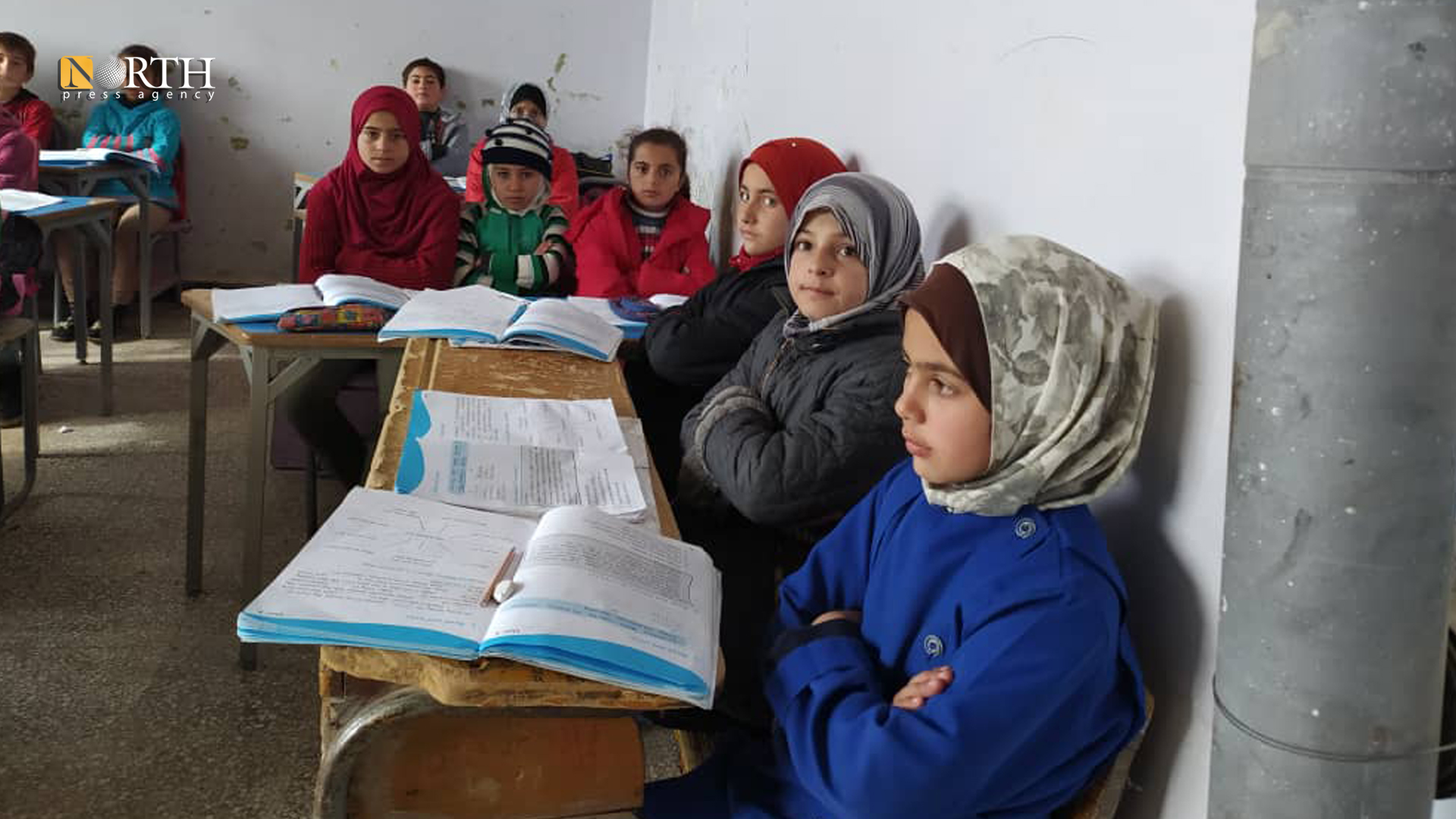ALEPPO, Syria (North Press) – The absence of transportation between the city of Aleppo and its northern countryside caused the closure of schools and deprived a big number of students of education.
Aleppo and its countryside have been recently suffering from an increasing stifling transportation crisis.
Teachers and students’ families expressed their discontent of the suspension of the educational process in many schools in the northern countryside of Aleppo.
Closed schools
Schools of the villages of Tel Jebbin, Hardatnin, Mesqan, Kafr Naya, Deir Jamal, Kafr Naseh, Bayanoun and Ma’rasta al-Kahn were closed because teachers residing in Aleppo were unable to come due to the absence of transportation.
“The academic year is about to end, and the closure of schools will affect the students,” Hassan al-Abdullah (a pseudonym), a resident of the northern countryside of Aleppo and father of a student, told North Press.
“Who bears responsibility of this closure and the interruption of educational process?,” he wondered.
“The forced absence of teachers drove me to send the students back home,” Subhi al-Mustafa, principal, told North Press.
“Most of my school’s teaching staff are form Aleppo, and they cannot come due to the absence of transportation in light of the crisis of fuel,” he added.
He pointed out that they do not know when the educational process will keep suspended and the transportation crisis will be resolved.
The elementary and preparatory School of Mesqan village includes 12 classrooms and more than 300 students of different ages, according to the principal.
The principals in the countryside of Aleppo demanded the Directorate of Education in Aleppo to continue the educational process, “we do not know how our colleagues residing in the city, will come to the schools”, according to al-Mustafa.
Forced attendance
Teachers from Aleppo contracts with minibuses to transfer them to their schools in the countryside.
Hasna al-Khaled, a teacher residing in Aleppo and working in Kafr Naya School said, “we are a group of teachers who contracted with a minibus to take us to our school.”
Every teacher pays 6,000 Syrian pound (SYP) per week to the driver for a distance of about 30 kilometers, according to al-Khaled.
“This amount of money is large as our salaries do not exceed 50,000 SYP per month, but we have no other option,” she added.
However, the inability of the driver to secure the fuel “prevented us to continue attending school,” she noted.
Despite the repeated demands of the teachers from the Directorate of Education in Aleppo “to the necessity of securing a public vehicle to transfer us to our schools, we did not receive any reply,” she declared.
“We are forced to attend school and not to be absent, otherwise we will be dismissed from school if we were absent for more than 15 days, and an amount of money will be deducted for each day of absence,” she stated.
The Directorate of Education considers the absence of the teachers as unjustified, “and does not consider the reasons for the absence nor resolve the problem.”
New procedures
The Fuel Directorate in Aleppo took new procedures to decrease the car allocations of fuel.
It allocated 20 liters of fuel for taxis for four days, and 20 liters for private cars every seven days.
Muhammad Ali Sharbo, minibus driver, stopped transferring teachers to some schools in the northern countryside of Aleppo for three days.
“For three days, I could not obtain any fuel due to its shortage; as 20 liters that we receive every day have been decreased to 10 liters every two days,” he said.
The Fuel Directorate fully stopped the minibuses’ allocations of fuel inside the city, whereas 10 liters are distributed to minibuses working on transporting the passengers from the city to the countryside and vice versa.
He pointed out that the quantity is insufficient, “we work from morning until night transferring the passengers from the countryside to the city apart from transporting teachers back and forth.”
“We cannot continue to work, as the price of the fuel has reached more than 2,500 SYP per liter. That is why we stopped working until we secure fuel,” according to Sharbo.

